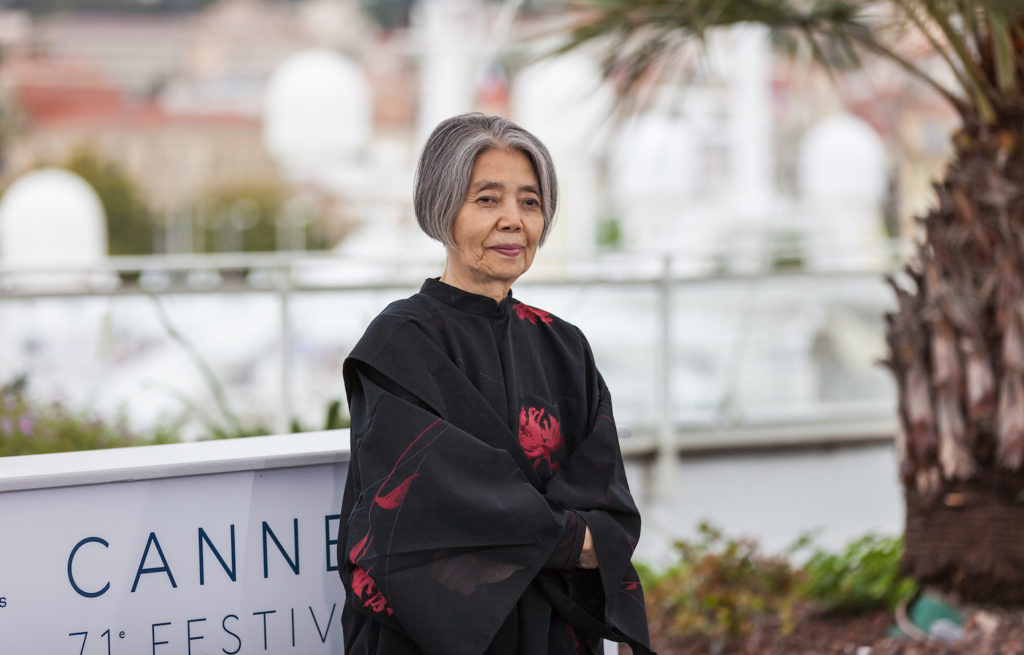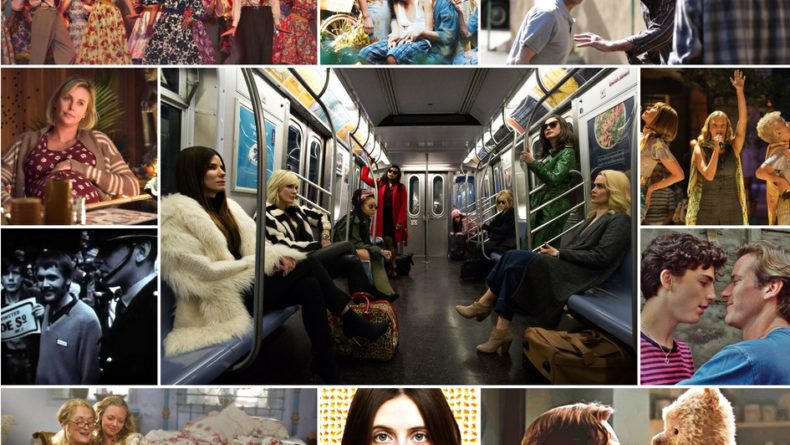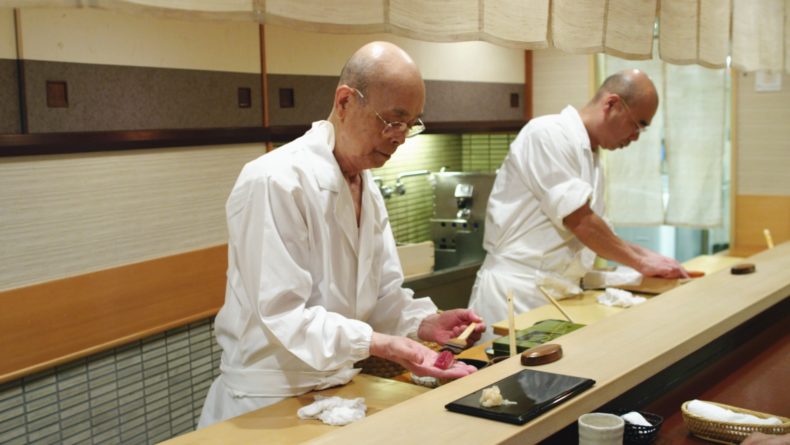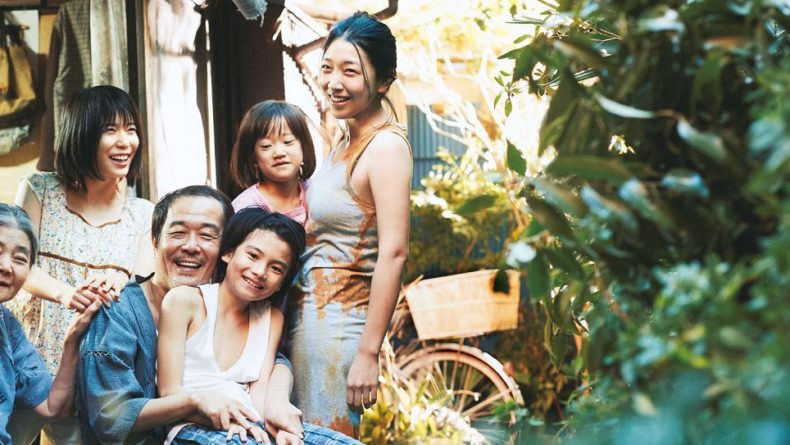Remembering Kiki Kirin Through 5 Of Her Most Renowned Movies
Bidding Goodbye To Japan's Beloved On Screen Obaachan
The world has seen another legend go.
September 15th, 2018 left the world heartbroken at the loss of one of Japan’s most legendary individuals on screen, the internationally acclaimed actress Kiki Kirin. She died peacefully at her home in Tokyo at the age of 75, surrounded by immediate family, presumably of cancer, a disease she had been battling since 2004. Her fighting spirit, witty humor, an endless list of movies that had forever changed the Japanese cinema, and a unique approach to life, however, will forever remain celebrated in Japan and overseas.
 © Photo by taniavolobueva / Shutterstock
© Photo by taniavolobueva / ShutterstockKiki Kirin at the 71st annual Cannes Film Festival in May 2018. Photo: taniavolobueva / Shutterstock
A curious life, a legendary character
Born in 1943 in Tokyo, Kiki (née Keiko Nakatani) started her acting career under the name of Chiho Yuki in the early 1960s as an actress for the Bungakuza theatre troupe. Initially, she had planned to become a pharmacist, but after failing to take the exam due to a ski injury, she grabbed the first job post she saw — an audition for a theatrical performance.
Today, leaving more than 100 television and film credits and nearly 30 acting awards behind, Kiki left the world as one of Japan’s most acclaimed actresses of all time. She remains best known for her frequent motherly and grandmotherly roles in award-winning movies such as Tokyo Tower: Mom and Me, and Sometimes Dad, Chronicles of My Mother, Kamikaze Girls, Half Confession, and her most recent work, Kore-eda’s Shoplifters. Despite her fame, however, her awards and solid presence on the Japanese screen were recognitions Kiki had always been modest about:
“I don’t remember any of them now,” she told media with a laugh. “Once we finished shooting, I just threw away the script and forget all about it.”
The former is only a glimpse into Kiki’s down-to-earth, witty and incredibly human character (both onscreen and in real life). In fact, she couldn’t be further from the quietly suffering, virtuously self-sacrificing grandmother roles often she played.
Throughout her life, Kiki lived defying the status quo both on set and in her personal life. In 1977, she found her name, Kiki Kirin, by thumbing through a dictionary after auctioning her old stage name (Chiho Yuki) on a TV show, telling the media at the time that she “had nothing else to sell (but her name). In 1973, after a short-lasting previous marriage, she tied the knot with rocker Yuya Uchida, a celebrity she remained legally married to until her death despite having lived with him for only about a year and a half after their marriage. Their unconventional marriage constantly created a buzz in the media, being as atypical as it was, yet showing a deeper connection between the two than many other couples living under the same roof do not have.
Kiki lived defying the status quo both on set and in her personal life.
After separating their homes, the two remained estranged, contacting each other only once a year. In 1981, Uchida submitted a divorce document at the city hall without Kiki’s knowledge, her reaction to which was to file a lawsuit, demanding the divorce to be annulated, which it did.
In 2004, after Kiki was diagnosed with breast cancer and underwent a mastectomy, the two began contacting each other once a month and spent a vacation in Hawaii together once every year. Yet, they remained physically separated. Uchida was a major influence in her life, a figure she would say she was “addicted to” and a person who changed the way she approached her career in general — including her change from resenting the media to patiently answering every question and even letting them visit her for dinner at her secluded home in Tokyo’s Shibuya ward.
The couple co-starred on screen for one and only time together in April 2011 in a TV commercial for the wedding magazine Zexy. The two are seen sitting down when Kiki asks Uchida “what’s good about marriage” — a moment that somewhat became an analogy of their odd yet inseparable relationship.
To bid Kiki our own version of goodbye, we’ve put together a list of our five favorite movies she starred at, remembering for one last time how she never failed to impress the viewers with her real and human personality.
1. Tokyo Tower: Mom and Me and Sometimes Dad (2007)
Directed by Joji Matsuoka, Tokyo Tower: Mom and Me, and Sometimes Dad, adapted from the best-selling autobiography of Lily Franky, follows the story of a lost young man (Jo Odagiri) tasked with taking care of his cancer-stricken mother (Kiki Kirin) who he invites to live with him in Tokyo. His mother’s wise, warm and virtuous nature inspires him to change his life. With Kiki being diagnosed with cancer only three years before the launch of this movie, much of her role in this film was derived from her personal experience.
Japanese title:『東京タワー 〜オカンとボクと、時々、オトン〜』
2. Shoplifters (2018)
Directed by Hirokazu Kore-eda, Shoplifters, which became Kiki’s last released work, follows the story of a poverty-stricken family who lives largely by relying on the pension of their grandmother (Kiki Kirin) and shoplifting. One day, after shoplifting for groceries, father Osamu and his son Shota come across a homeless girl in the freezing cold. Noticing bruises on Yuri’s arm, Osamu and his wife, Nobuyo, despite their exhausted finances, decide to informally adopt her. The movie, which won the prestigious Palme d’Or at this year’s Cannes Film Festival, ultimately raises the question of what is family — and are blood ties a defining factor in becoming one.
Japanese title:『万引き家族』
3. Sweet Bean (2015)
Directed by Naomi Kawase, Sweet Bean is the touching story of an uncommon friendship between a lonely male confectioner, a 76 year-old-woman (Kiki Kirin) and a high school girl (Kiki’s actual granddaughter). It is (dare I say it) a sweet and simple story told with plenty of emotion. Kiki plays Tokue, a sweet bean (an) maker for all her life who, having faced rejection, finds a way to pass on her knowledge, love and passion for an-making to the next generation. Exploring the power of life’s simple joys in relieving burdens, uniting souls and the need to hand down skills from generation to generation, watching Sweet Bean will definitely leave you moved.
Japanese title:『あん』
4. Still Walking (2008)
Also directed by Hirokazu Kore-eda, Still Walking follows the story of a family who comes together yearly to commemorate the death of the eldest son who heroically drowned whilst saving the life of another boy. The film takes its viewers on a rollercoaster of nostalgia, humor, sorrow and uncertainty as family memories are shared.
A well-known story related to this film is when Kiki auditioned, she asked Kore-eda if he was considering other candidates. In a 2016 interview, she recalled: “He told me the names of those candidates and I replied that I would be a better choice than any of them.” Her confidence and sheer determination started a continuing collaboration with Kore-eda, including I wish (2011), Like Father, Like Son (2013), Our Little Sister (2015), and After the Storm (2016).
Japanese title: 『歩いても 歩いても』
5. After the Storm (2016)
Another Hirokazu Kore-eda classic, After the Storm is the story of a self-proclaimed novelist who hasn’t penned anything in years and who after the death of his father struggles to find money for child support and finding direction in life. In an effort to bond with his still young son, he takes him out during a major storm in one of the most touching scenes in the history of Japanese cinema. Kiki Kirin once again plays the mother (and grandmother) in this movie, in a role that has a major impact on the change her son is about to undergo. One of my favorite films on the list, watch After the Storm for yet another touching Kiki Kirin performance that leaves you asking the question — what is the meaning of the movie’s Japanese title, which translates into “(something) deeper even than the ocean”?
Japanese title: 『海よりもまだ深く』
Following Kiki’s passing, director Kore-eda released a statement addressed to the media, saying that she had been a divine figure to him.
“I believe that her life ended in a very splendid way, a way that suited her way of living well,” he said.
RIP, Kiki! We hope you’ll continue inspiring millions in heaven, too!
















Leave a Reply